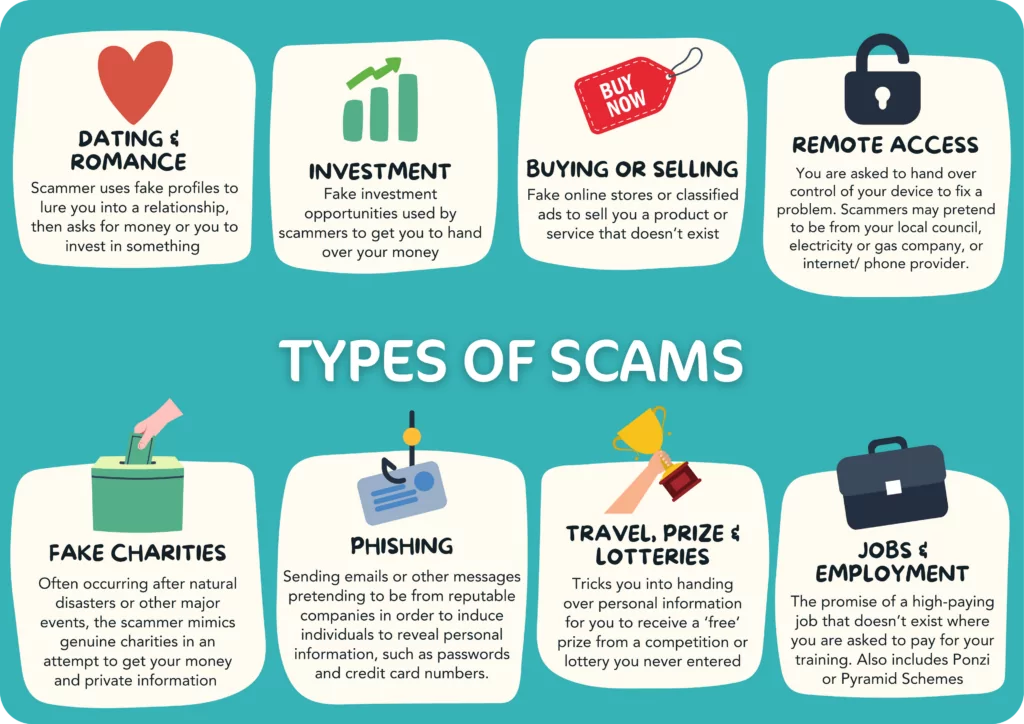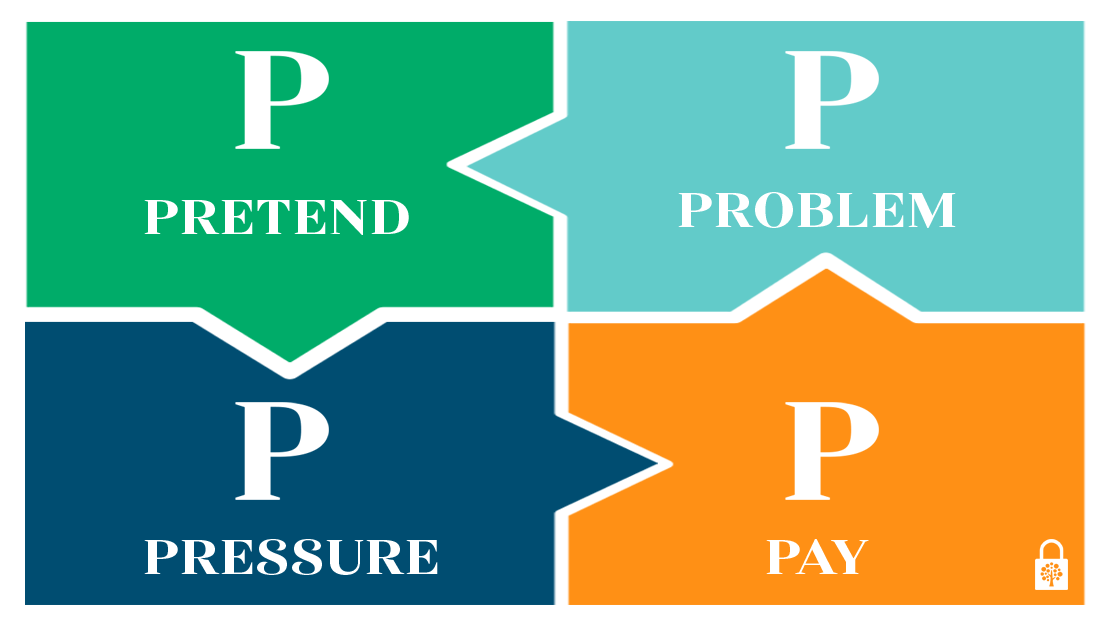The internet has revolutionized how we connect, shop, and conduct business, but it has also become a breeding ground for scammers. Online scams are more sophisticated than ever, targeting individuals and businesses worldwide. Knowing how to identify and avoid these scams is crucial to protecting your finances and personal information.
Common Types of Online Scams
Understanding the different types of online scams can help you recognize warning signs before falling victim. Here are some of the most prevalent scams:
1. Phishing Scams
Phishing scams involve fraudulent emails, messages, or websites that mimic legitimate companies to steal personal information such as login credentials and credit card details.
How to spot it:
- Unsolicited emails with urgent requests for personal information
- Links leading to suspicious websites
- Poor grammar and spelling errors in official-looking emails
2. Investment Scams
These scams promise high returns with little or no risk, often using fake testimonials and professional-looking websites.
How to spot it:
- Unrealistic profit guarantees
- Pressure to invest quickly
- Lack of verifiable company details
3. Romance Scams
Scammers build online relationships through dating sites and social media, eventually asking for money under false pretenses.
How to spot it:
- Avoiding video calls or in-person meetings
- Sudden financial emergencies requiring your help
- Too-good-to-be-true romantic gestures from strangers
4. Tech Support Scams
Fraudsters pose as IT professionals claiming that your device is infected with malware and demanding payment for unnecessary services.
How to spot it:
- Unsolicited pop-ups warning of a virus
- Calls from “tech support” claiming your computer has issues
- Requests for remote access to your device
5. Cryptocurrency Scams
Scammers take advantage of the cryptocurrency hype, offering fake investment opportunities or impersonating legitimate platforms.
How to spot it:
- Guaranteed high returns on crypto investments
- Requests for payment in cryptocurrency only
- Fake endorsements from celebrities or influencers
Tips to Avoid Online Scams
Avoiding scams requires vigilance and critical thinking. Here are key steps to protect yourself:
1. Verify Sources and Websites
Before entering personal information or making transactions, ensure the website is legitimate. Look for HTTPS in the URL and check online reviews.
2. Be Wary of Unsolicited Messages
If you receive unexpected emails, texts, or calls requesting sensitive information, verify their authenticity before responding.
3. Avoid Clicking Suspicious Links
Hover over links in emails to check their destination before clicking. Avoid downloading attachments from unknown sources.
4. Use Strong Passwords and 2FA
Protect accounts with complex passwords and enable two-factor authentication (2FA) wherever possible to add an extra layer of security.
5. Educate Yourself and Stay Updated
Scammers constantly evolve their tactics. Stay informed about new scams through cybersecurity blogs, news, and organizations like the Federal Trade Commission (FTC).
6. Trust Your Instincts
If something feels off or too good to be true, it probably is. Don’t hesitate to walk away or verify information before proceeding.
What to Do If You Fall Victim to a Scam
If you suspect that you’ve been scammed, take immediate action:
- Report the scam to your bank, local authorities, and platforms like the FTC or Internet Crime Complaint Center (IC3).
- Secure your accounts by changing passwords and enabling 2FA.
- Monitor your financial statements for unauthorized transactions.
- Seek professional help if large sums of money are involved.
Conclusion
Online scams are constantly evolving, but by staying vigilant and informed, you can significantly reduce your risk. Loss Aid is committed to helping individuals and businesses identify, prevent, and recover from online fraud. If you need assistance, don’t hesitate to reach out to our team of experts.




